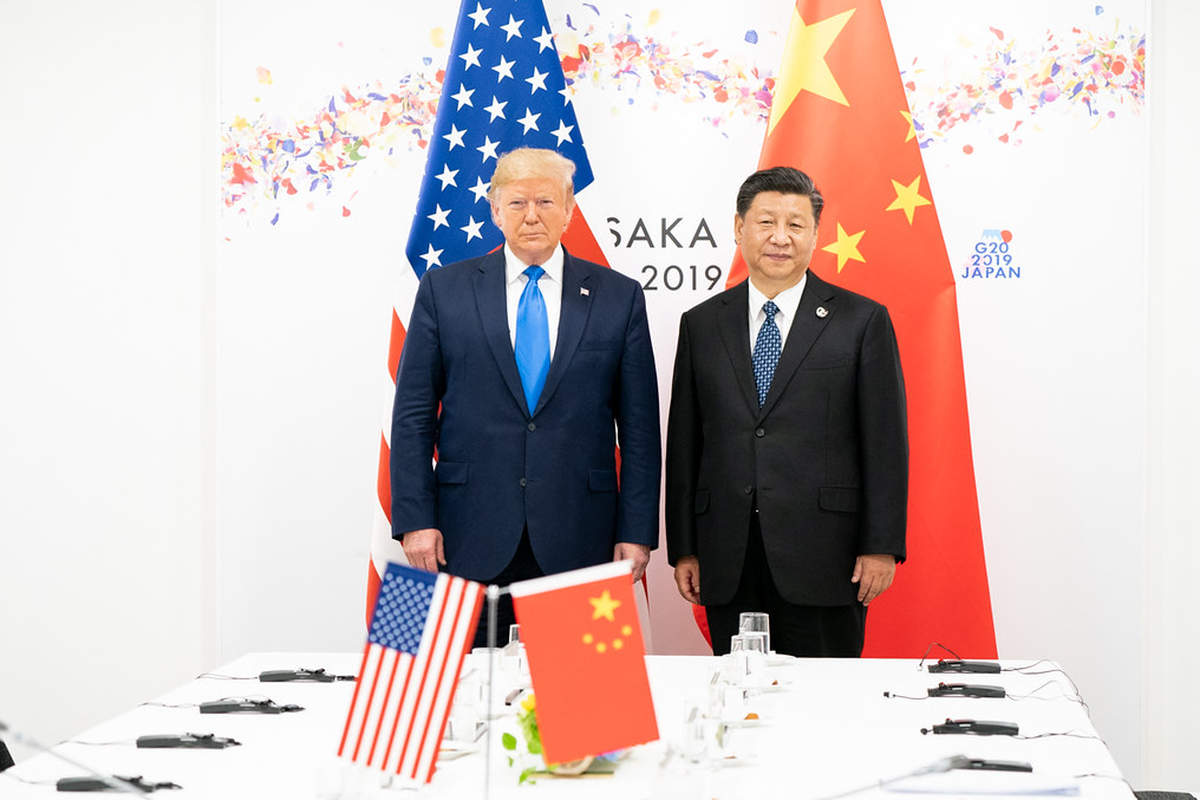The Court of International Trade ruled that the President had exceeded his constitutional powers by imposing “reciprocal” tariffs without Congressional approval. A decision that upsets the Republican administration’s trade strategy.
A judicial setback for the Trump administration
Donald Trump has suffered another setback in the courts. On Wednesday May 28, the U.S. Court of International Trade ordered the suspension of the “reciprocal” tariffs decreed by the Republican president. The three judges do not question the principle of raising customs surcharges, but consider that this prerogative is the exclusive prerogative of the US Congress.
This decision follows two complaints filed after the presidential announcements last April. On the one hand, an alliance of twelve American states led by Arizona, Oregon, New York and Minnesota. On the other, a collective of American companies. All criticized the president for appropriating powers that do not constitutionally belong to him.
An interpretation deemed unconstitutional
The judges were particularly critical of Trump’s use of the 1977 Economic Emergency Act (IEEPA). According to them, this text does not allow him to institute “an unlimited surtax on products from virtually any country”. No U.S. president had ever before used this law to impose tariffs.
In the Court’s view, the Executive Orders “exceed the powers granted to the President”, as IEEPA only authorizes him to impose economic sanctions in the face of an “extraordinary and unusual” threat. Any broader interpretation would constitute “a relinquishment of legislative power to another branch of government”, contrary to the Constitution.
Immediate consequences
This decision blocks the specific customs duties imposed on Canada, Mexico and China, as well as the “reciprocal” surtaxes scheduled for early July. The administration has ten days to complete their removal. On the other hand, taxes on automobiles, steel and aluminum remain in force.
This upheaval is disrupting ongoing trade negotiations, notably with the European Union and China. U.S. Trade Representative Jamieson Greer fears that the decision will “paralyze efforts” to negotiate trade agreements.
Financial markets welcomed the news: Asian stock markets rose on Thursday, with Tokyo ending 1.88% higher, while European markets also gained ground.
The legal battle continues
The White House immediately counter-attacked. A spokesman, Kush Desai, denounced a decision by “unelected judges” who would have “no authority to decide how to properly handle a national emergency”. The Trump administration quickly appealed and may seek an emergency stay to temporarily reinstate the tariffs.
On the Democratic side, elected official Gregory Meeks sees this as confirmation of an “illegal abuse of executive power”. Internationally, China took the opportunity to urge Washington to “totally cancel the unjustified unilateral tariffs” and “listen to the rational voices of the international community”.
🚨 Un tribunal annule les droits de douane imposés par Trump !
💥 Droits de douane mondiaux de 10% : ANNULÉS
💥 Canada/Mexique (25%) : ANNULÉS
💥 Surtaxes chinoises (20%) : ANNULÉSLe tribunal tranche :
“Trump n’a pas l’autorité illimitée pour imposer ces sanctions”.
⚠️… pic.twitter.com/NSNjzPf5Ws
— MoneyRadar (@MoneyRadar_FR) May 29, 2025
Saisie par des importateurs, la Cour fédérale américaine du commerce international vient de bloquer les droits de douane décrétés par Trump, jugeant qu’il a outrepassé ses pouvoirs.
L’affaire pourrait aller jusqu’à la Cour suprême. pic.twitter.com/cdt9U0g4rX
— Virginie Landry 🗽🐍 🐢 (@virginie1landry) May 29, 2025

